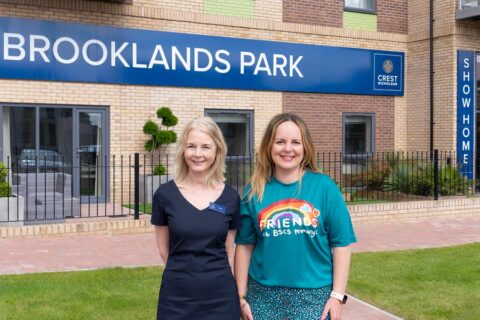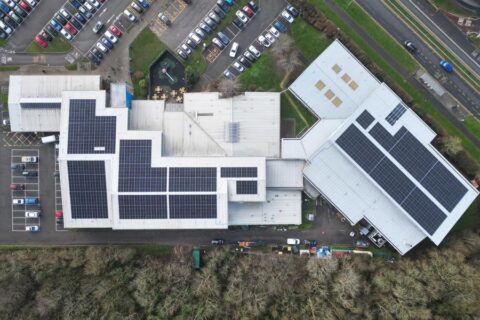South Gloucestershire Council’s (SGC’s) proposed new Resource and Waste Strategy, covering the period 2020 to 2030, incorporates aims to further improve recycling rates in the district, but also includes measures to reduce our consumption of raw materials, especially single-use plastics.
A 14-week public consultation on the draft strategy document was approved at a Cabinet meeting on Monday 17th June.
Ambitious, legally binding targets outlined in the document include recycling 65 percent of waste by 2035 and 70 percent of packaging by 2030.
Current recycling rates are just under 60 percent, with the projected recycling rate for 2018-2019 being 58.3 percent. However, the council admits that the results of its annual waste analysis in 2018 show that it “has more to do” in order to divert waste from the black bin into recycling. It is estimated there are (annually) 10,268 tonnes of food waste disposed of in the black bin that could be recycled. In an effort to reduce this, the council says it will continue to promote its weekly food waste collections and encourage residents to reduce avoidable food waste in line with national campaigns such as ‘Love Food Hate Waste’.
The new strategy does not include any changes to kerbside collections, although from April next year bulky household items (such as sofas and mattresses) will be taken to a new facility to be shredded, removing metals, wood and rigid plastics for recycling. The remaining material will be sent for energy recovery, with the aim of zero going to landfill.
Proposed measures to promote sustainable alternatives to single-use plastic items include sharing knowledge with businesses and communities and promoting the ‘Refill’ campaign locally.
The local authority’s ruling group said in a statement:
“Under Conservatives, the council has introduced weekly recycling collections at no additional cost to residents and has reduced the green bin tax forced on residents by the Liberal Democrats and Labour.”
“Plans are also progressing to open a new recycling centre in Filton, following the purchase of land earlier this year.”
The council’s current Waste Strategy, which runs from 2015 to 2020 and focuses on waste reduction, increasing re-use and increasing recycling, has been fully implemented and has resulted in:
- A 23 percent reduction in residual waste (7,978 tonnes) between April – December 2018, compared to the previous year
- A 16 percent increase in recycling (3,194 tonnes) in the same period
Cllr Rachael Hunt, Cabinet member for communities, said:
“The success in recent years to increase recycling across South Gloucestershire to record levels and adopt a more environmentally responsible attitude is very much down to the receptiveness of the public and I want to thank residents for supporting our work to improve our local environment through a positive approach to recycling.”
“With this latest plan now going out to the public, we would ask residents to continue to support this approach by engaging with the consultation and telling us how they think we can improve.”
Anyone wishing to comment on the strategy should respond by 27th September by completing a questionnaire that is available on the council’s website at www.southglos.gov.uk/consultation
If you don’t have access to the internet and wish to have paper copies of the consultation documents and a questionnaire to complete, phone 01454 868154.
Paper copies of the completed questionnaire can be posted to the council or handed in at any library or One Stop Shop.
Photo: Cllr Rachael Hunt, Cabinet member for communities, at Yate Sort-It Centre.
Resource and Waste Strategy 2020 and Beyond
Foreword from the draft document put out for consultation
Together with the community, we have made significant progress to reduce the amount of waste we produce. In 2014 the average household in South Gloucestershire created 1,071 kg of waste. By 2018 this had reduced to 1,001 kg, a saving equivalent to 70kg per household (nearly seven percent). At the same time, we have made huge strides to improve recycling, with 58.3 percent of waste recycled in 2018, making us one of the best performing authorities in England and already exceeding the national target of 50 percent by 2020.
We want to take this opportunity to say thank you to residents for tackling the challenges of waste head on and working with us to make this amazing progress.
In our previous Waste Strategy (2015 – 2020), we focused on moving waste away from energy recovery and disposal in landfill, prioritising recycling. Our progress has been very impressive in such a short period.
As we look ahead to 2020 and beyond, our focus must now shift towards doing our bit to save our planet’s precious resources by reducing our consumption, especially of single-use items and ensuring our environment is protected for future generations. Climate change is closely linked to the use of raw materials. If we reduce the amount of raw materials we are using, we can reduce the effects of global warming on our environment.
The time is right to focus on a circular economy for waste, moving away from the linear approach of ‘take-make-consume-throw away’ to a system where resources are minimised, regenerated and reused. A shift in how we view waste will also create new opportunities to empower our communities and deliver economic growth.
This article originally appeared in the July/August 2019 issue of the Bradley Stoke Journal magazine (on pages 6 & 7). The magazine is delivered FREE, EVERY MONTH (except August), to ALL 8,700 homes in Bradley Stoke. Phone 01454 300 400 to enquire about advertising or leaflet insertion.




